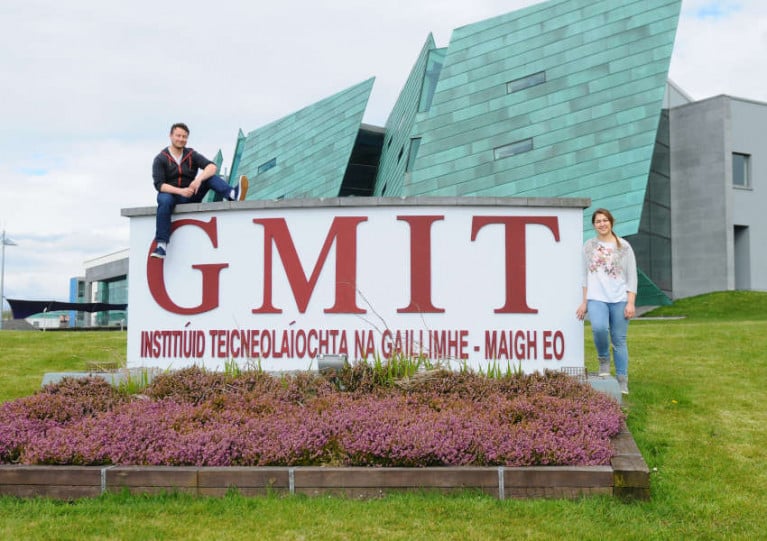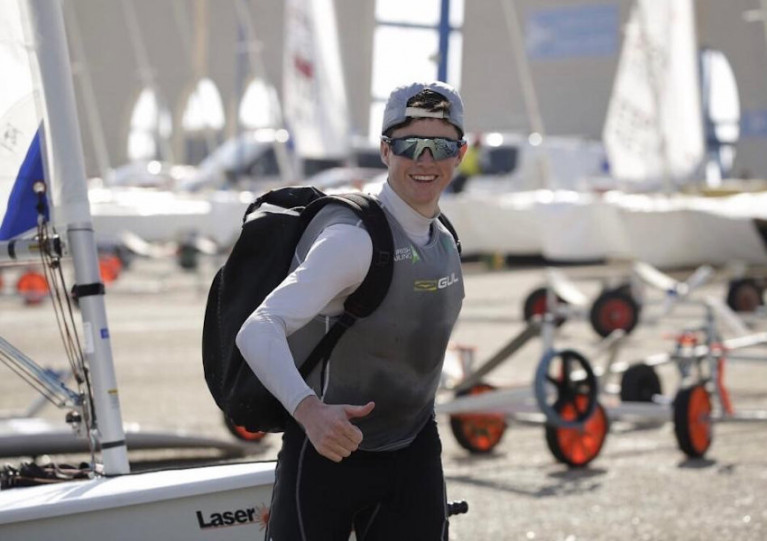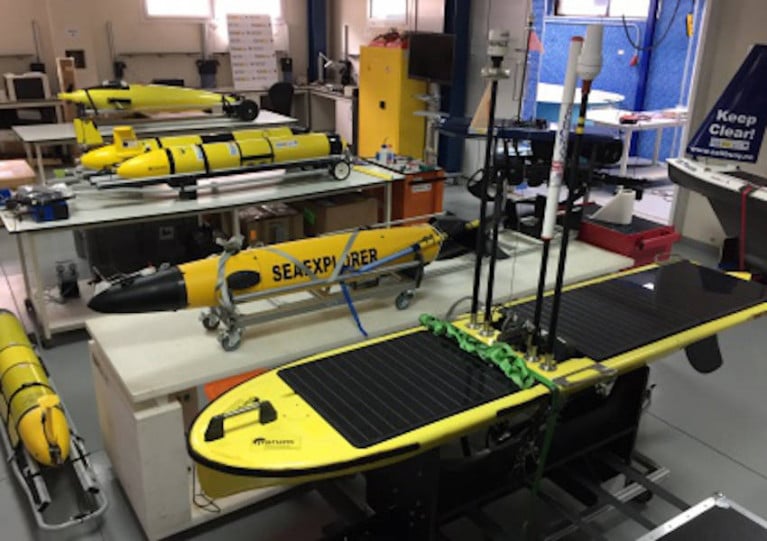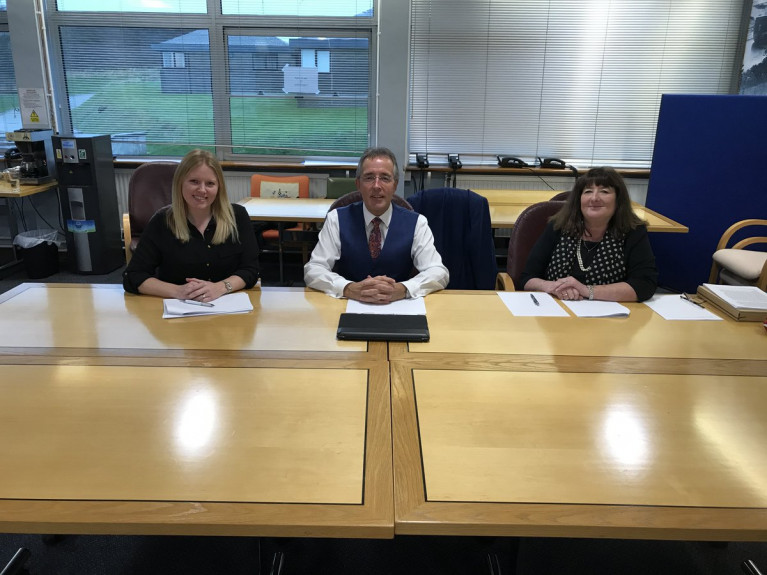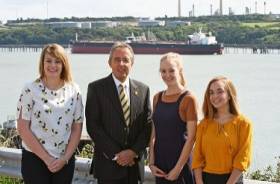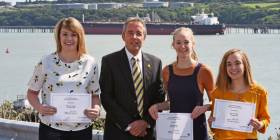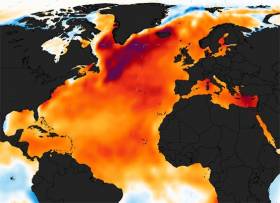Displaying items by tag: Scholarships
Dublin Port Scholarship Applications Now Open for 2021
Dublin Port Company has established a scholarship programme to provide opportunities for individuals living in the Port area of Dublin to fulfil their potential through education.
The programme is targeted at school leavers, mature student and others with a strong and focused ability and potential who would otherwise experience significant obstacles to progressing in third-level education.
Full information on the programme, including selection criteria and application forms, is available from the Dublin Port website or by writing to Dublin Port Company Head Office: Port Centre, Alexandra Road, Dublin 1, D01 H4C6.
The closing date for applications is 5pm on Friday 27 August.
SmartBay Ireland Announces New Scholarship For Research With GMIT
SmartBay Ireland have collaborated with the Galway-Mayo Institute of Technology (GMIT) to launch a new scholarship scheme for a candidate from the Connemara Gaeltacht to begin a Master’s research programme.
Commencing in November 2020, the new programme aims to develop post-primary educational resources in the field of marine renewable energy.
And the scholarship, which is now open for applications, is designed to fund and support a candidate in the Connemara Gaeltacht Region — while also driving awareness around ocean literacy, marine renewable energy, and sustainability through education in local schools.
The successful candidate will receive full funding support to the value of €44,500 over the duration of the 24-month project, which will focus on the preparation and delivery of educational resources at post-primary level, in both English and Irish.
SmartBay Ireland general manager John Breslin said: “This scholarship is an excellent opportunity for the successful candidate not only to advance in their career, but to be at the forefront of developing educational resources and make a positive and lasting impact on the post primary curriculum.”
Applications are open until noon next Wednesday 16 September for candidates with experience as a post-primary educator, preferably in the field of science, with demonstrable proficiency and fluency in the Irish language.
“This is a very exciting opportunity which would suit an enthusiastic candidate with a passion for education, the marine and sustainability,” said Dr Róisín Nash, a lecturer at GMIT.
“At a time when research and management of essential marine resources are key features of a sustainable future, this is a unique project with lots of opportunities for the candidate to be creative and influential in incorporating marine and renewable energy into the classroom.”
The SmartBay Ireland Postgraduate Research Scholarship is funded by the Galway-Mayo Institute of Technology, the Marine Institute, the Sustainable Energy Authority of Ireland and Údarás na Gaeltachta.
Full details on the postgraduate research scholarship and application procedure are available from GMIT website HERE.
Irish Sailing has congratulated its Academy athlete Tom Higgins, who has received one of the prestigious Ad Astra Elite Sports Scholarships from UCD.
Nearly 400 school-leavers applied for the 15 Ad Astra Scholarship programme places.
The programme looks for “exceptional, high-achieving students” and allows them to study for their degree alongside the pursuit of their sporting goals, with both financial aid and additional supports such as academic mentoring and calendar rescheduling.
It means the athlete, who sails the Laser Radial out of the Royal St George, can balance big competitive events alongside college work without either suffering.
Higgins has completed his studies in Gonzaga College and is awaiting his predicted Leaving Certificate grades. He hopes to pursue a degree in the areas of business, commerce or law.
“The last three months have been strange,” he said. “When the schools first closed, I continued to hit the books, but obviously that all changed.”
He’s been training with the Irish Sailing Team on the water in Dun Laoghaire, and joins them in the video calls for strength and conditioning, cycling sessions and coaching classes.
He’s now looking ahead to the autumn: “We’ve got graduation in September, so I still feel connected with school. Then college starts, and I have the Laser Radial Youth European Championships in Hyeres [in France] at the end of October. It’ll be busy!”
The Marine Institute, in collaboration with PLOCAN (Oceanic Platform of the Canary Islands) in Spain, is pleased to announce a call for proposals from academic institutions for a structured four-year PhD scholarship in advanced ocean technology development and/or ocean observing stems.
The Eoin Sweeney Scholarship Programme aims to provide research training opportunities for scientists in oceanography, marine engineering and related marine science disciplines.
It will also establish collaboration between Ireland and Spain though research undertaken using the test-bed and demonstration facilities in both countries.
The award is named in honour of Eoin Sweeney (1947-2017) who was a key figure in establishing Ireland’s nascent ocean energy sector, including the development of crucial test-bed sites off the Irish coast opening opportunities for researchers and technology developers.
Proposals are invited from suitable research supervisors at higher education institutions in the Republic of Ireland with the necessary competence to host and supervise the PhD scholar.
The scholarship also provides an invaluable opportunity for the scholar to spend two or three months per annum utilising the state-of-the art facilities in PLOCAN, Spain. Maximum funding of €120,000 over four years is available.
Summary details of the scholarship can be found in the proposal outline, and the application procedure and all terms and conditions can be found HERE.
All applications must be submitted through the Marine Institute's online grant management system (RIMS) by 4pm on Tuesday 21 July.
The Eoin Sweeney Scholarship is funded by the Marine Institute under the Marine Research Programme with the support of the Irish Government.
University students totalling five from Pembrokeshire, Wales, are to receive scholarships from the Port of Milford Haven – one more than usual – as the standard proved to be exceptionally high this year.
The south Wales port has awarded scholarships on an annual basis consisting of a financial award of £1,500, plus a three-week work placement during the summer. The panel felt that the shortlisted candidates had so much to offer that they would provide an additional award as the winners were so deserving.
The successful students are Amelia Davies from Burton who is studying Business Management at Cardiff University; Fred Smith from Manorbier who is at the University of Bristol studying Politics and Philosophy; Grace Gibbon of Haverfordwest who is at Harper Adams University in Shropshire on a Rural Enterprise and Land Management course; Megan Matthews from Pembroke who is studying Engineering Science at the University of Oxford and Sophie Rees from Liddeston who is on a Gateway to Veterinary Medicine course at The Royal Veterinary College.
Chairing the scholarship panel was the Port of Milford Haven’s Chairman Chris Martin, accompanied by Maxine Thomas, Designated Senior Lead for Safeguarding and Learner Wellbeing at Pembrokeshire College, and Sara Aicken, PR and Communications Executive at the Port.
Chris was extremely impressed with the standard of entries to the scheme this year, commenting “We usually award four scholarships but this time the competition was so strong we decided to bend the rules and award five! The winners are studying a variety of courses across a range of subjects all over the country, but all spent the majority of their education in Pembrokeshire, so we’re thrilled to be able to support local talent. The financial award is of course beneficial to them, but the summer placement is where the real value lies as it gives them a flavour of what it’s like to work in a busy, professional environment.”
The 2020/21 scholarship scheme will open for entries in the autumn.
Calling all Pembrokeshire Undergraduate Students for Welsh Port Scholarship
#Ports&Shipping - Undergraduate students from Pembrokeshire, south Wales are invited to apply for a Port of Milford Haven Scholarship.
The Port of Milford Haven’s annual Scholarship Scheme is now receiving applications for the programme. Four students will be selected to receive a financial award of £1,500, together with an expenses-paid, three week work placement at the Port during summer 2019.
Having supported over sixty students since it was introduced in 2003, the initiative continues to help local students during their studies and boost their future career prospects.
“We are looking forward to meeting another group of Pembrokeshire’s outstanding achievers”, said Anna Malloy, Stakeholder Engagement and Communications Manager. “Every year the interviewing panel are hugely impressed with the standard of applications and the enthusiasm and ambition shown by Pembrokeshire students and I particularly look forward to the work placements which students consistently tell us they value, in addition to the financial award. The placement provides them with demonstrable skills and adds weight to their CV’s and many of our past students have gone on to be very successful in their chosen careers.”
Sitting on the judging panel will be Chair of the Port of Milford Haven Chris Martin, Head of Safeguarding and Learner Services at Pembrokeshire College Maxine Thomas and Pat James, Chair of Governors at Milford Haven School.
To be eligible, students must be on a degree course at a British university and have completed the majority of their secondary education in Pembrokeshire. Applications must be completed online by midnight on Sunday 11th November by clicking the link here.
Scholarship Scheme Students Complete Placements at Welsh Port of Milford Haven
#Ports&Shipping - Winners of the annual scholarship scheme in the Welsh Port of Milford Haven, have completed summer work placements experiencing the organisation’s wide range of activities.
Rhiannon Morgan, Rebecca Foster, Elizabeth Jenkins and Isabelle Hughes were interviewed by a panel of judges who took into account their academic achievements, extra-curricular activities and ambitions for the future. They all received £1,500 plus work experience, undertaking projects related to their subject areas and interests.
Rhiannon from Houghton has just completed a Law degree at Aberystwyth University and was placed within the Estates team; Rebecca from Clunderwen is studying History in Durham and worked with the Tourism department; Elizabeth from Pembroke Dock is at Plymouth University studying Geology and spent time with the Environmental team and Isabelle from Roch who’s an Oxford University student reading Molecular and Cellular Biochemistry was placed within the Quayside Operations department.
The university students presented their projects to senior managers along with the scholarship panel which consisted of the Port’s Chairman Chris Martin; Maxine Thomas, Head of Safeguarding and Learner Services at Pembrokeshire College and Yvonne Evans, Chair of Governors at Milford Haven School.
Chris Martin was impressed with the standard of work produced by the students, commenting “The presentations were very thorough and it was clear that they found the placements to be of great benefit. The content was also really thought-provoking and I look forward to exploring some of the suggestions made with my colleagues.”
The 2018/19 Scholarship Scheme will be launched towards the end of September.
Scholarships For Atlantic Ocean Climate Science Students
#MarineScience - Applications are invited from postgraduate students of marine science, atmosphere and climate-based sciences worldwide to participate in the Atlantic Ocean Climate Scholars Programme in Galway from 12-20 September 2016.
This intensive, accredited workshop will examine how climate and oceans interact, with particular examples from the Atlantic Ocean and higher latitudes.
The programme will be led by an international team of research leaders in climate science with contributions from policy makers and researchers in the field.
A number of scholarships are available to cover travel and accommodation expenses and the deadline for applications is this Friday 3 June 2016.
The relationships between human activities and the oceanic and atmospheric processes that drive our climate will be investigated in the context of the latest IPCC Assessment Report published in 2013.
Critical elements of the global climate system will be scrutinised with special reference to the Atlantic Ocean and its ecosystems. Ocean observation programmes, new technologies, and model outputs will be evaluated in the context of societal and governmental responses to climate change.
Workshop activities will include presentations, field trips and practical data sessions.
Applicants can apply online until 1800 UTC on Friday 3 June. Further information is available by emailing [email protected] or [email protected].
The Atlantic Ocean Climate Scholars Programme is a collaboration between the Strategic Marine Alliance for Research & Training (SMART) based in GMIT, NUI Galway, the Alfred Wegener Institute (AWI), the Partnership for the Observation of the Global Ocean (POGO), the Helmholtz Climate Programme REKLIM and is supported by the Nippon Foundation.


























